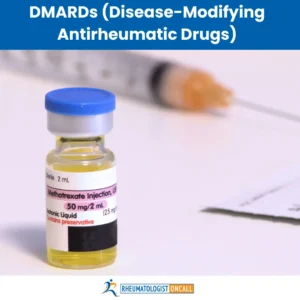SHARE
The first step in effectively a chronic disease such as Rheumatoid Arthritis (RA) is fully understanding the diagnosis and treatment options. This article serves as a guide to navigate through the Rheumatoid Arthritis (RA) treatment options and understand the types of medications, their risk, and benefits.
Rheumatoid Arthritis (RA) Treatment Guidelines recommendations
Based on the current guidelines to treat Rheumatoid Arthritis (RA) we use a step-wise approach in choosing therapies starting with medication that is less aggressive and has fewer side effects and navigating towards medication that is more aggressive and potentially has more side effects.
Rheumatoid Arthritis (RA) Treatment Options
1. Non-steroidal anti-inflammatories (NSAIDs)
Examples:
When to use? NSAIDs can be used in mild Rheumatoid Arthritis (RA), or in combination with other medications for moderate forms of arthritis. They can decrease pain and swelling, and many are available as over-the-counter medications.
Potential Side Effects: If used for a long period of time, NSAIDs can increase the risk of gastric ulcers, gastrointestinal bleeding, kidney failure, liver damage, heart attacks, stroke, and even heart failure.
2. Steroids
Examples:
When to Use? Steroids can be used in moderate to severe forms of Rheumatoid Arthritis (RA), most of the time in combination with other medications. Steroids have powerful and quick anti-inflammatory effects that will decrease inflammation and pain. To be avoided in people with uncontrolled diabetes.
Potential Side Effects: weight gain, thinning of the bones, osteoporosis, fractures, diabetes, high blood pressure, gastric ulcerations, acne, easy bruising, increased risk of infections, bone fractures, vision changes, muscle weakness, psychosis, anxiety, palpitations
3. DMARDs (Disease-Modifying Antirheumatic Drugs)

Examples:
- Methotrexate: Widely used in rheumatology but administered at lower doses for Rheumatoid Arthritis than cancer treatment.
- Leflunomide: Similar action to Methotrexate.
- Hydroxychloroquine: Can be taken alone or in combination with other DMARDs.
- Sulfasalazine: Used when Methotrexate or Leflunomide cannot be tolerated or are contraindicated.
When to Use? DMARDs are drugs that are supposed to stop the progression of the disease. DMARDs are used in moderate and severe forms of Rheumatoid Arthritis, usually as the first line in therapy.
Potential Side Effects: abdominal pain, cramping, diarrhea, anemia, liver and kidney issues, anemia, muscle weakness, skin/ hair discoloration, rash, and headaches. Hydroxychloroquine may also give visual changes; the risk is dose-dependent and time-dependent ( the risk of retinopathy is 4% after 10 years of use and 8% after 20 years of use)
4. Biologics
Examples:
- TNF alpha inhibitors (e.g., Adalimumab/ Humira, Etanercept/Enbrel, Golimumab/Simponi, Certolizumab/ Cimzia, Infliximab/ Remicade, etc.).
- IL-6 inhibitors (e.g., Tocilizumab/ Actemra and Sarilumab/ Kevzara)
- CTLA-4 inhibitors (Abatacept/ Orencia)
When to Use? Biologics, called monoclonal antibodies, are more targeted therapies towards specific molecules causing inflammation in our body (e.g., TNF-alpha and IL-6 are proteins). Biologics are used in moderate and severe Rheumatoid Arthritis cases, usually when the treatment with DMARDs fails or is not well tolerated. Biologics and DMARDs (e.g. methotrexate) can be combined for a better effect.
Biologics can come as infusions (administered as intravenous therapy) or self-injectables (subcutaneous, prefilled syringes).
Potential Side Effects: injection site reactions, increased risk of infections (e.g. upper respiratory infections, otitis, sinusitis) and skin infections, more rare severe infections), they can increase the risk of tuberculosis or hepatitis B/ C, herpes virus reactivation; skin cancer, rarely increased risk of lymphoma or other cancers (this is an ongoing debate since ongoing inflammation and carrying an autoimmune disease will increase the risk of cancer).
5. Janus kinase (JAK) inhibitors
Examples:
Tofacitinib/Xeljanz
Baricitinib/Olumniant
Upadacitinib/Rinvoq
When to Use? Jak inhibitors are small, oral drugs called targeted synthetic disease-modifying antirheumatic drugs (tsDMARDs). They act on the nucleus of immune cells to inhibit the production of MULTIPLE proteins that are causing inflammation (called cytokines). Jak inhibitors can be used in moderate to severe cases of Rheumatoid Arthritis that fail therapy with DMARDs and, or biologics.
Potential Side Effects: increased risk of infections ( e.g., otitis, sinusitis, and skin infections, more rare severe infections), increased risk of herpes virus reactivation (always zoster virus vaccination before starting therapy); To be avoided in people with a history of cardiovascular diseases like strokes or pulmonary emboli due to increasing risk of thrombosis.
6. Rituximab
When to use? Rituximab is a potent drug used in severe cases of Rheumatoid Arthritis (RA), those that do not respond to any of the medications mentioned above, or patients with a recent history of cancer, where no other drugs are allowed.
Potential Side Effects: severe anemia, low platelets, low white blood cells, increased risk of infections, and infusion-related reactions.
Promising Treatments for Rheumatoid Arthritis – Update in 2023
This JAK inhibitor approved in 2019 in Japan is currently being evaluated in other countries (Korea, Taiwan, China), but has NOT yet been approved in the USA.
This new JAK inhibitor was approved in 2020 to help Rheumatoid Arthritis symptoms and limit joint damage. The drug can be used alone or in combination with methotrexate. Filgotinib is available in Europe and Japan but NOT in the United States.
This is a new IL-6 inhibitor that was approved in 2020. Treatment with olokizumab OKZ can significantly improve Rheumatoid Arthritis symptoms and physical function. In a recent phase 3 trial, combination therapy of olokizumab with methotrexate treatment was superior to placebo.
Special Considerations and Personalized Treatment
Each patient is unique; therefore, treatment responses may vary. It is essential to discuss these medications with a rheumatologist who specializes in Rheumatoid Arthritis and can tailor a treatment plan based on your needs.
Rheumatologist OnCall Holistic and Integrative Approach
At Rheumatologist on Call, we offer an integrative approach specifically tailored for Rheumatoid Arthritis patients. Our method combines personalized treatment plans with education on nutrition, online physical therapy sessions, and mindfulness techniques, all designed to be a 1:1 approach between patients and the physician. This holistic strategy aims to empower patients to manage their condition, focusing on both physical and mental well-being.
Conclusion
Receiving an Rheumatoid Arthritis diagnosis can be overwhelming, but knowing the available treatment options empowers patients to take control of their disease. It is crucial to engage in a detailed discussion with your rheumatologist. Ask questions and get answers before you start treatment.
Disclaimer: The information provided in this article is intended as general guidance only and should not replace professional medical advice. Always seek the advice of your physician or other qualified healthcare providers regarding any medical condition or treatment-related questions you may have.














